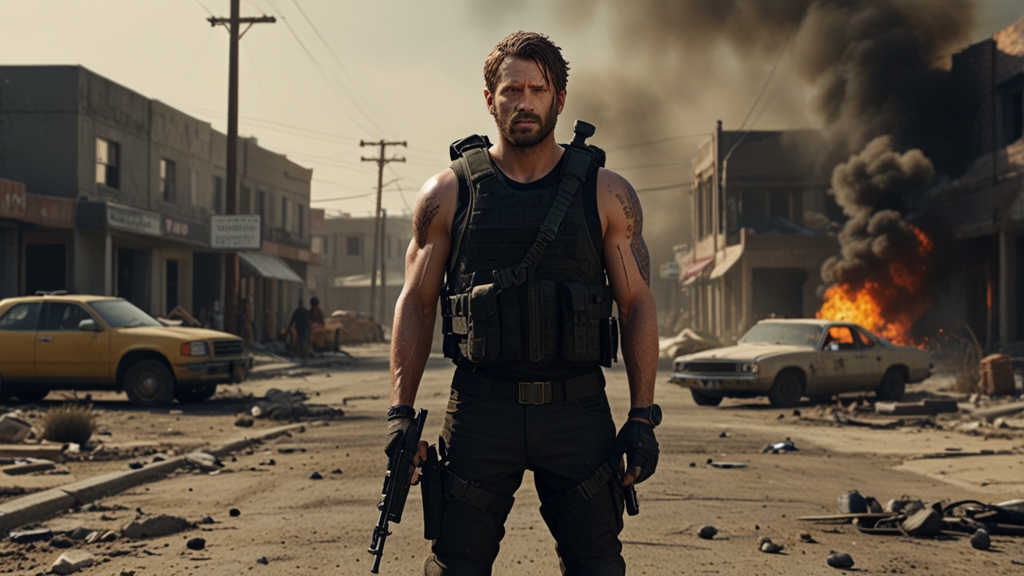Caught in the Crossfire: Ethics vs. Survival
In various spheres of human existence, from corporate boardrooms to battlefields, individuals frequently face situations where they must choose between ethical principles and sheer survival. These moments of conflict pose profound ethical dilemmas and have far-reaching consequences. This article delves into some of the most pressing instances where ethics clash with survival, posing difficult choices that leave lasting impacts on individuals and communities alike.
The Corporate Conundrum
The corporate world is rife with ethical dilemmas. Consider a scenario where a company discovers that one of its products poses a danger to consumers. Will the executives choose to recall the product, accepting the immediate financial loss and possible damage to their reputation, or will they continue selling it to avoid bankruptcy? While a recall aligns with ethical standards, survival instincts might push decision-makers toward the path of least resistance.
"The path to moral integrity is often fraught with significant risk and potential loss, yet it remains the hallmark of responsible leadership." - Business Ethics Analyst
Corporations are frequently tempted to cut corners or even engage in unethical practices for the sake of staying afloat. Another common scenario is the dilemma faced by whistleblowers. Employees who expose unethical practices risk their jobs and livelihood but do so in the name of integrity and public safety.
The Battlefield Dilemma
In the military context, the clash between ethics and survival is often stark. Soldiers may find themselves in situations where they must decide between following the rules of engagement and doing whatever is necessary to survive. For instance, during combat, a soldier might face an enemy posing an immediate threat. Should they take the enemy prisoner as per the Geneva Conventions, or eliminate the threat to ensure their safety and that of their comrades?
"In the fog of war, the distinction between right and wrong often blurs, leaving soldiers to grapple with choices that defy simple moral classification." - Military Ethics Scholar
These situations test the ethical training and moral fiber of military personnel. The repercussions of such decisions can lead to severe psychological impacts, as well as scrutiny from international bodies and the court of public opinion.
The Healthcare Quandary
Healthcare professionals routinely face ethical decisions that pit patient welfare against institutional directives or resource limitations. For example, during a pandemic, doctors and nurses might need to prioritize patients for life-saving treatment. Ethical guidelines suggest treating the most critically ill first, but survival instincts may lead them to treat those with the best chance of recovery.
Resource constraints add another layer of complexity. Should a doctor provide an expensive yet potentially lifesaving treatment to one patient, knowing it will deplete resources for others? Balancing the Hippocratic Oath with the harsh realities of resource scarcity is an ongoing dilemma.
Everyday Ethical Dilemmas
Even in everyday life, individuals are not immune to making challenging ethical decisions for survival. Consider the plight of a single parent who resorts to theft to feed their hungry children. Although stealing conflicts with societal norms and laws, the instinct to provide for one's family is a powerful motivator.
"The complexity of human morality is most evident when our basic survival is at stake, pushing us to make choices that we might otherwise condemn." - Social Ethics Researcher
These instances exemplify the tensions that arise when ethical standards and survival needs clash, highlighting the need for a nuanced understanding of morality.
Conclusion
The conflict between ethics and survival transcends various domains, challenging individuals and organizations to navigate a precarious balance. While some may argue that survival justifies bending ethical rules, others hold that maintaining ethical integrity is paramount. As society continues to evolve, the importance of addressing these dilemmas and seeking balanced solutions becomes increasingly critical.
Ultimately, the reconciliation of ethics and survival requires a collective effort to create systems that support ethical behavior while ensuring fundamental needs are met. Only then can we hope to mitigate the conflicting pressures that force individuals into the crossfire between doing what is right and doing what is necessary.






